Matters of language.
To reclaim or reject words around age?
Sticks and stones may break my bones, but words will never hurt me. Whoever came up with that phrase was clearly never trolled on the internet (rite of passage these days, sadly. Just today someone told me I look like “creepy AI.” Not entirely sure how to take that.)
As for Shakespeare’s “What’s in a name? That which we call a rose / By any other name would smell as sweet.” Well, Romeo and Juliet found out the hard way: words, names, and language matter.
It’s probably no surprise that I’m obsessed with language. At Ageism Is Never In Style, we live and breathe it - keynotes, workshops, boardrooms, campaigns, customer audiences, content - you name it. Language is central to storytelling and culture. Since day one, we’ve explored and dissected how words perpetuate negative age narratives (often with a lovely side of sexism thrown in, because of course) and created viral, award-winning campaigns around reclaiming and rephrasing it.
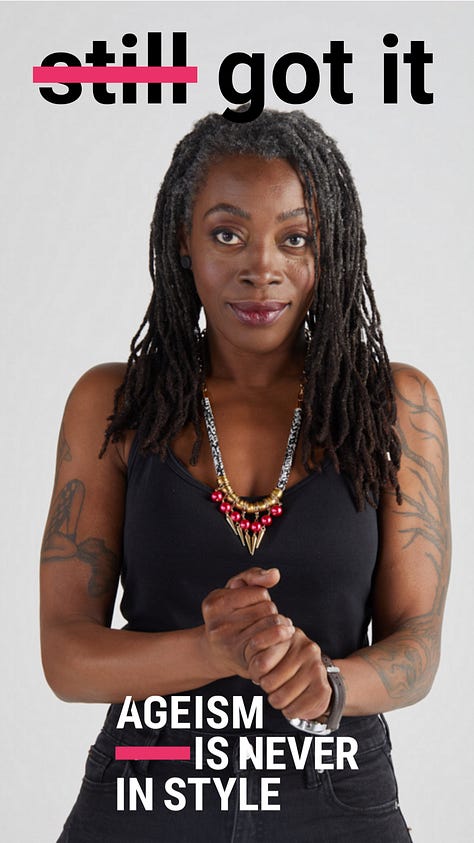
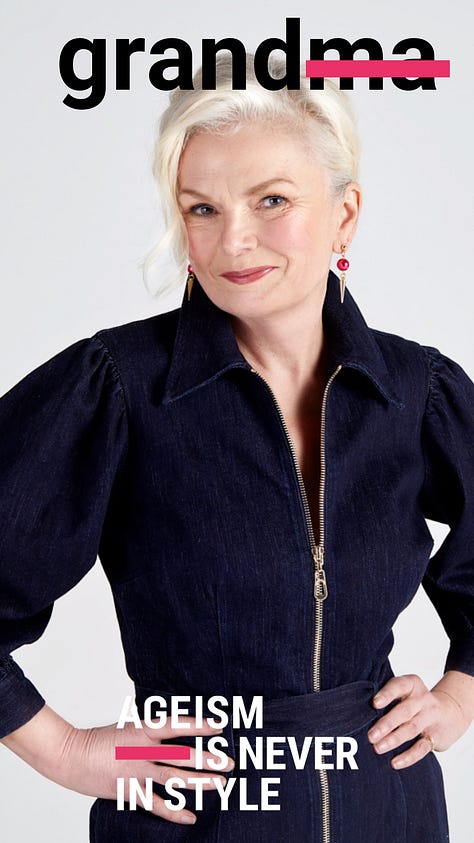
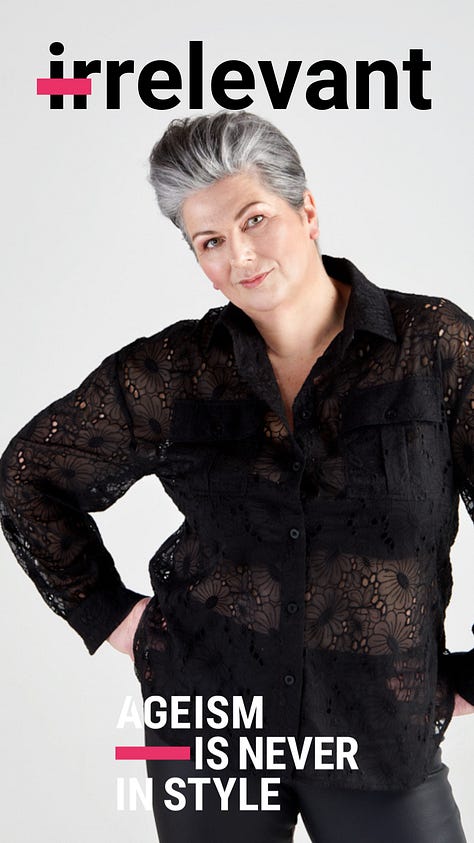
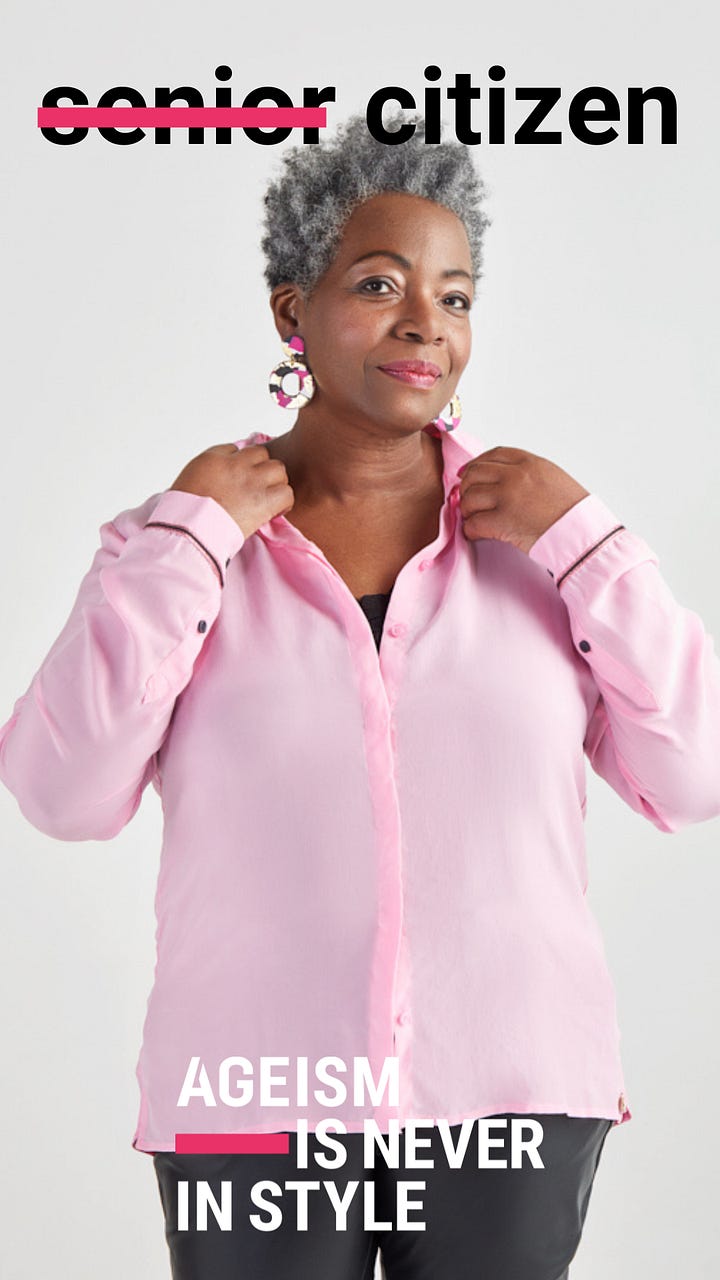
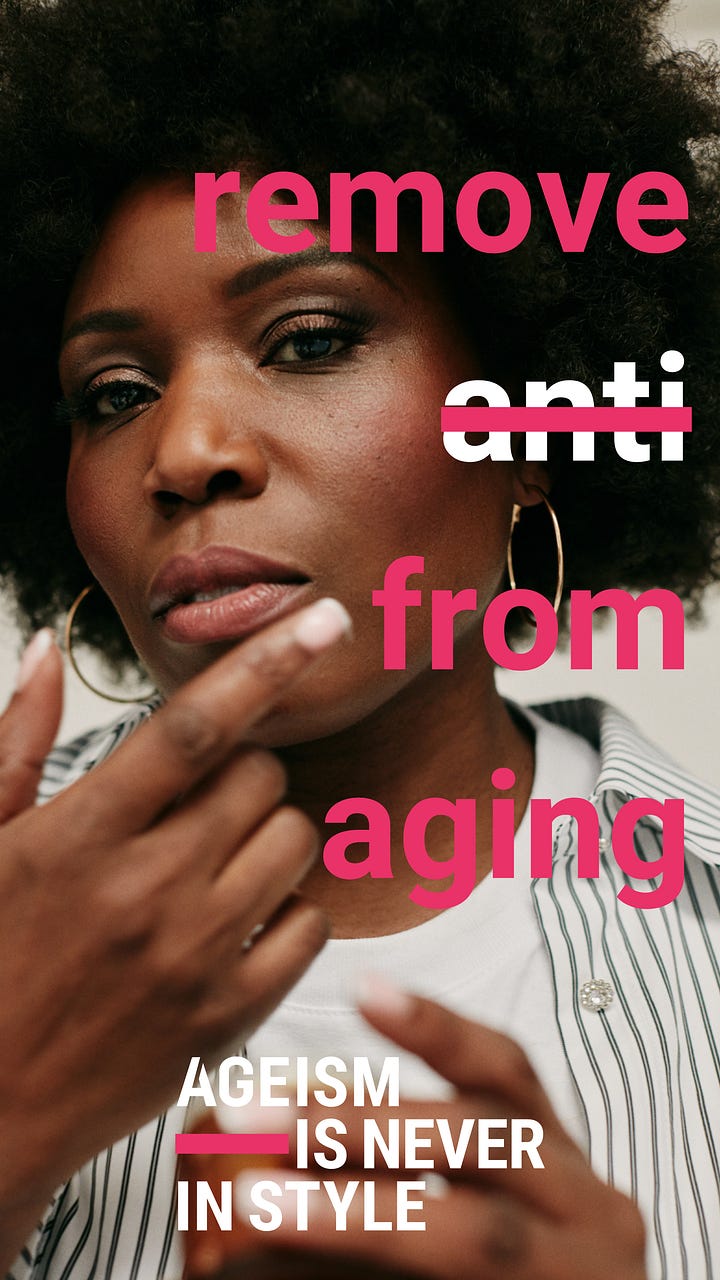
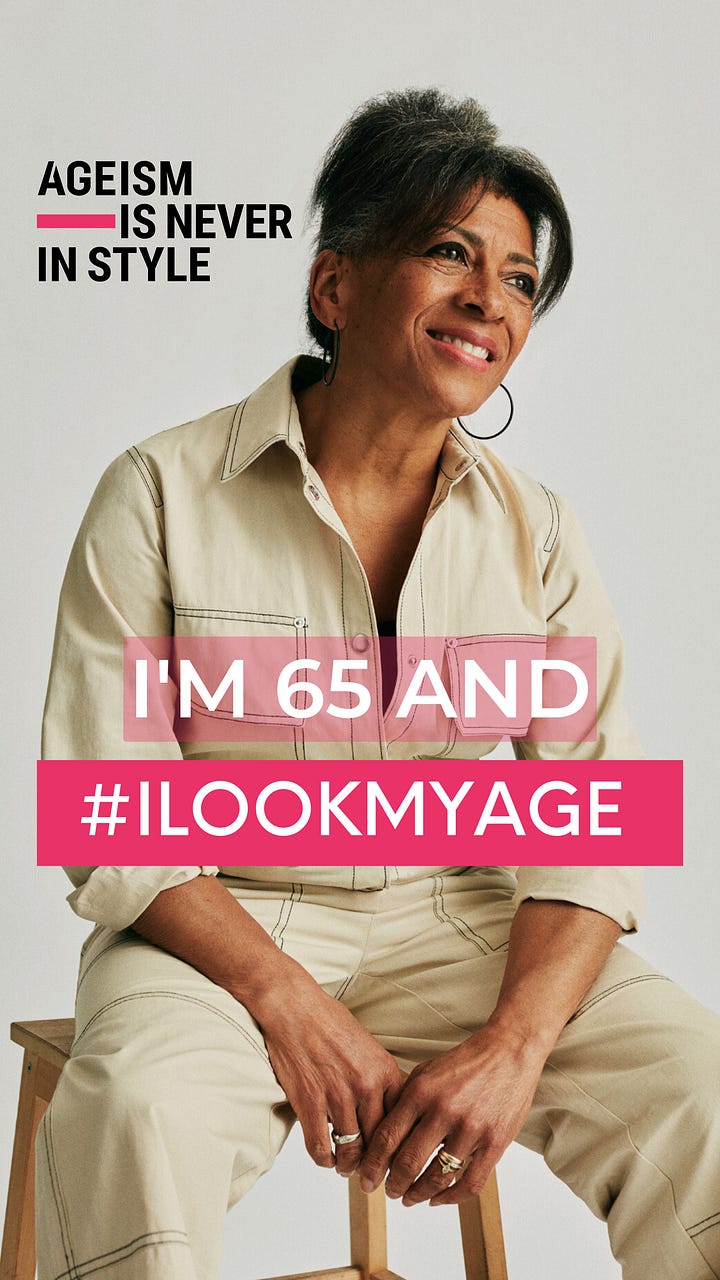
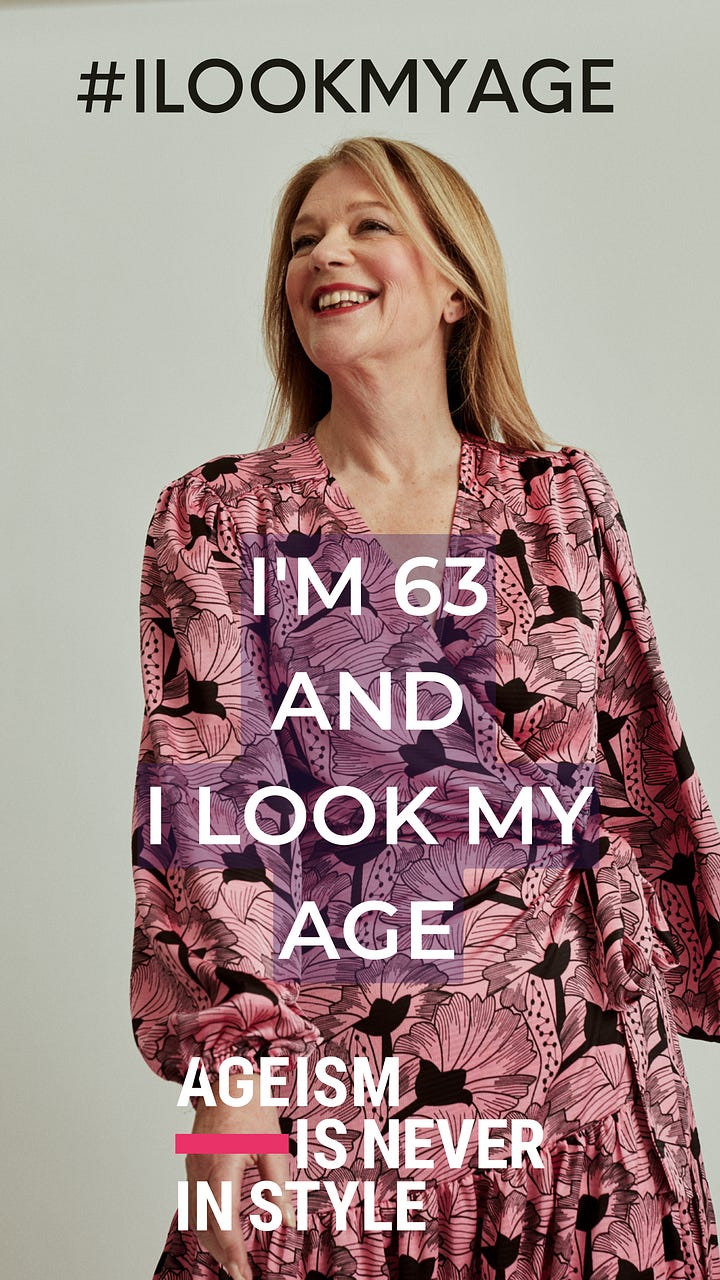
But lately, I’ve hit a bit of a crossroads. And it’s a big one. We’ve seen so much progress over the past five years, but now, in order to move even further forward, do we have to reject and replace traditional language around ageing - or reclaim it?
To date, we’ve done a bit of both. Personally, I love the idea of reclaiming language. It’s powerful. Other movements have shown how empowering it can be. I’ve always identified as a feminist, and back in the mid-2000s, I debated whether we should ditch the word because it had become associated with “angry extremists” and “gender supremacists.” My view? Hell no. Bowing to warped interpretations is letting the patriarchy win.
So I instinctively feel the same about ageing. Words like “ageing,” “old,” “age”? We need to normalise, neutralise, and destigmatise them - not toss them aside. Another word many struggle with: “midlife.” Yet to find a good alternative (I know some love “Queenager,” but I’ve found it to be extremely Marmite).
At the same time, real change often means meeting people where they are. We can be idealistic, academic, over-intellectualise it - but if it doesn’t move the needle, what’s the point? This was the debate I had in December last year with
and Michael Clinton at NYC Department For Aging’s “Boom! A Silver Dawning In American Cities” national conference. Michael leaned toward rejecting traditional language; he was anti “old”. Ashton toward normalising; “old” should just be a neutral fact. Me? Firmly in the middle. At AINIS, we connect the dots, and we’ve learnt that sometimes the steps aren’t perfect, but they make a difference. So for now, maybe rejecting certain ageing words and replacing them is the right moveAgeing is complicated. Nuanced. Sensitive. And people’s willingness to listen varies. How receptive they are - and how challenging ideas land - depends on the audience. For example, our global community enjoys reclaiming words, but these are people already highly engaged with our work:
Midlife: 20% like the term; 35% don’t; 43% didn’t, but want to reclaim it.
Old: 35% are fine with it (just stating a fact); 19% dislike it (rich with negative connotations); and 38% didn’t, but want to reframe it.
And the reality is that, still today in 2025, most people are biased not just against age - but against the language of age itself.
Using it wisely and strategically is key to getting through doors, especially in corporate and business spaces. I chewed over this recently with colleagues
, Annie Coleman, and Lisa Edgar. Some are chomping at the bit, especially in HR, D&I, and some in marketing. But we need this topic on strategic agendas. Would we get more buy-in -or a seat at strategic boards - if we changed the language altogether? Possibly. And if it helps get the conversation moving, I’m willing to adapt and be agile.Which brings me to the next challenge: if we replace “ageing” (at least for now), what do we replace it with? “Longevity” is trendy and palatable to most - but not perfect. To me, it’s about living better, not just longer. For others, it’s healthspan, biohacking, or something else entirely. Maybe it’s enough for now: a comfortable entry point. Functional, but not flawless.
Like the term “pro-age.” For now, it serves a purpose. But is it perfect? No. Will it date? Yes. Has it been co-opted as a synonym for anti-ageing? Absolutely. I discussed this and more with legendary makeup artist Daniel Sandler in our new mini Age Positive series (yes, he shares expert tips too - if you’ve ever felt “meh” or less visibile with age, he gets it and shares how to help).
Another example: “Age is irrelevant” or “Age is just a number.” Instinctively, it puts my back up. Age is relevant. Age is real. Different ages and life stages bring different experiences, challenges, joys, priorities, and interests. The issue isn’t age - it’s how society dictates its relevance. The key is to redefine if, when, where, and how age is relevant. We need a more fluid approach, recognising life stages rather than just rigid numbers. But for now, often (depending on context) I let these phrases slide. Whilst some phrases are just downright problematic, others serve an empowering purpose for many, even if they are technically a bit ageist. And I have to remember: I work in this scene every day, and have done for 10+ years, whilst many and most are just now joining the party (a point reaffirmed by others earlier this year whilst I was at the American Society’s On Aging’s national ‘On Aging’ conference).
Maybe it’s just like the word “feminism.” For much of the 2000s, it continued to be a “dirty word” (I remember reading a glossy where multiple women said, “I’m not a feminist because I believe in equality of the sexes” - that is literally the definition.). But temporary banishment played a necessary role, and eventually it swung back around (culturally it helped that Beyoncé put the definition in Flawless).
And maybe it really just does depend on the context and audience. And we need a bit of both reclaiming and replacing language to keep the movement flowing and growing.
So here’s my question to you, my Substack readers: In September 2025, if we want to shift the predominantly negative narrative around ageing, should we stop using the language altogether - or defiantly reclaim it? Maybe a mix of both? Or does that just make things messy? Thoughts in the comments, please.
And let’s remember: language is always evolving, especially as this highly complex, nuanced, and important movement grows. Terms that feel right today may not resonate tomorrow—and that’s okay. What matters is that we keep questioning, reflecting, and expanding the ways we talk about ageing.
Further musings and highlights at AINIS HQ this week
If you don’t watch Only Murders In the Building, you need to start. On Hulu / Disney+, it’s now onto series 5 and it’s a hilarious, warming, poignant, clever, witty, gripping and mysterious show about a true crimes podcast, but really it’s about an intergenerational friendship between Martin Short, Selena Gomez and Steve Martin. And the majority of the cast are over 50. Of course, there’s still some ageist jokes in there (sigh), but overall it’s fab. And really celebrates late bloomers, love and friendship at every age and stage of life, doesn’t pigeon hole, and intelligently shows the light and shade of getting older. (side note for those already watching the show: why and how is anyone still living in that building!?)
October is shaping up to be a brilliant month. 1st is Older Persons Day, and 9th is Ageism Awareness Day, and it’s very encouraging how many businesses, organisations and academic institutions are finally engaging, and I’m going to be travelling internationally for it. Watch this space for more to come.
Of course, age inclusion isn’t limited by a calendar date, and my keynote calendar is already getting booked up into Q3 2026. PROGRESS IS HAPPENING PEOPLE.


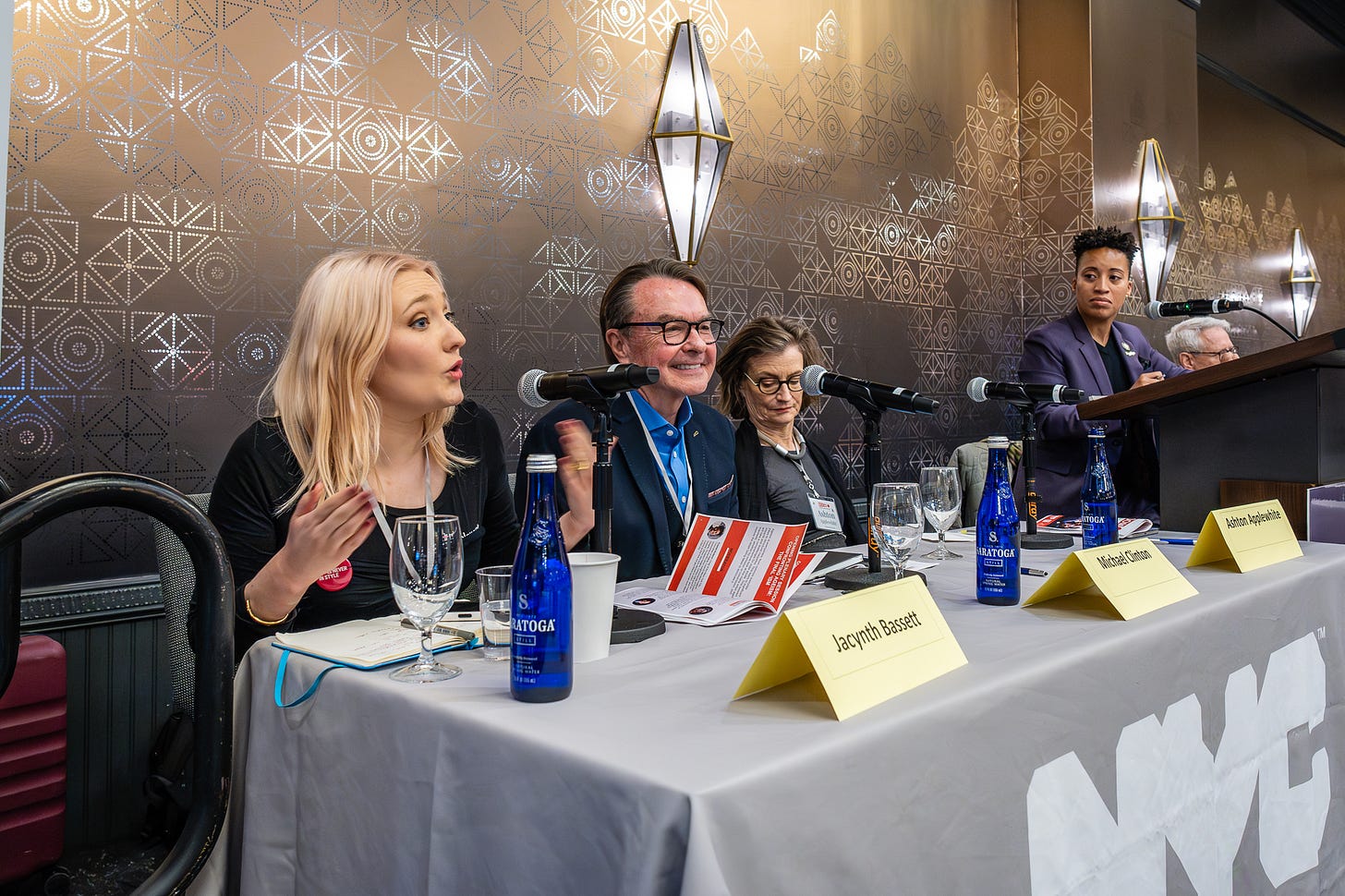
Such a great piece! Language really does matter, and it’s also true that it’s extremely personal to each person. I don’t love or identify at all with being a Queenager. Midlife I like, but it’s anyone’s guess as to how far along our journey we actually are. Pro-aging is my thing, and I always say that as long as anti-aging culture exists, pro-aging is a term I’ll use in resistance. Longevity, much like pro-age, is increasingly used in an ageist context - live longer, but never look old.
Since we won’t ever all agree on language, I try to focus on impact rather than specific words and phrases. What barriers are we breaking down? What doors are we opening? Who are we bringing with us, and who is still being excluded?
Progress is always messy and there’s no room for perfection in any movement. I’m here to reject what’s unacceptable and reclaim what we’ve been wrongly taught to shun or be ashamed of.
Thank you for this thought-provoking start to Friday!
Martin Short! Who is brilliant in OMITB.